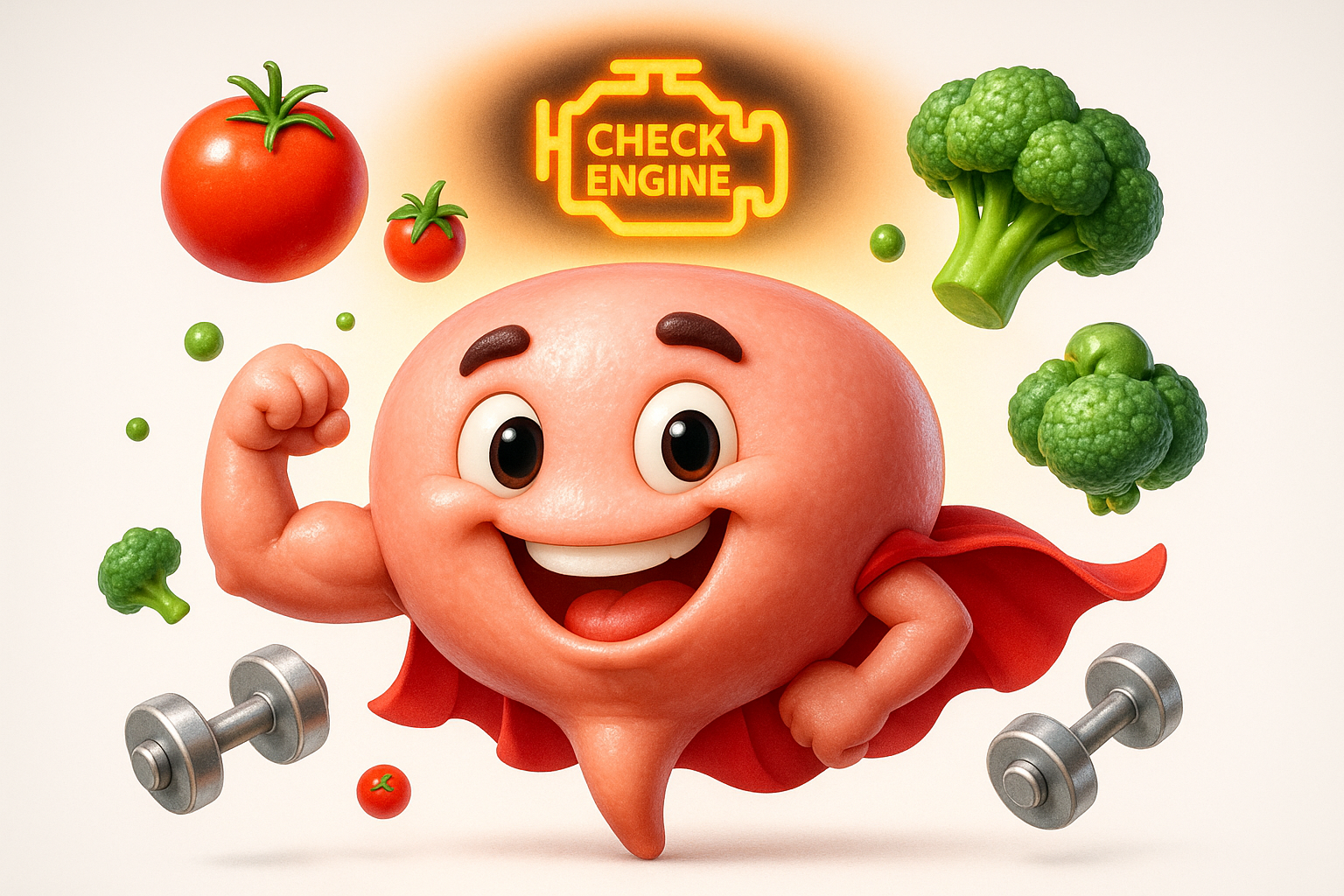Erectile Dysfunction and Confidence: A Man’s Guide to Reclaiming Both

Table of Contents
Let’s be direct: for many of us, sexual performance feels inextricably linked to our identity as men. So when things don’t work as they should in the bedroom, the fallout isn’t just physical—it’s a direct hit to our confidence and sense of self. You’re not alone in feeling this way.
Men often have a common thought: how does ed affect a man mentally? As we navigate our 40s, 50s, and beyond, our bodies change. Occasional or persistent erectile dysfunction (ED) affects an estimated 30 million men in the U.S. alone, yet the conversation rarely goes beyond the physical symptoms. As of September 2025, the focus remains largely on medication, ignoring the profound psychological impact.
This isn’t just another article about the “little blue pill.” This is a complete strategy to understand the vicious cycle between these performance issues and your confidence, and more importantly, a practical, step-by-step guide to break it. We will cover the medical realities, the mental frameworks, and the communication strategies to reclaim your confidence both in and out of the bedroom.
The Vicious Cycle: How ED Erodes More Than Just Erections
The first time it happens, it’s jarring. The second time, it’s a concern. After that, it can become a crushing weight. This isn’t just a physical problem; it’s a psychological feedback loop that can gather momentum with terrifying speed.
Performance Anxiety: The Engine of the Downward Spiral
Once you’ve experienced an inability to perform, the fear of it happening again becomes a self-fulfilling prophecy. You enter the bedroom not with anticipation, but with dread. Your mind starts racing: “Will it work this time?” “What if I fail again?” This state of high alert, or performance anxiety, floods your body with stress hormones like adrenaline, which actively constrict blood vessels—the exact opposite of what’s needed for an erection. The more you worry about it, the more likely these difficulties are to happen.
The Identity Crisis: When “Manhood” Feels Threatened
For better or worse, our culture often links masculinity with sexual potency and performance. When that ability feels compromised, it can trigger a deep identity crisis. Thoughts like “I’m less of a man” or “I’m failing my partner” can begin to take root. This loss of confidence doesn’t stay in the bedroom. It can bleed into your work, your social interactions, and your overall sense of vitality and purpose.
Pillar 1: The Medical Foundation – Rule Out the Physical First

Before we can effectively tackle the mental side, we have to address the hardware. Trying to fix this with mindset alone when there’s an underlying physical issue is like trying to fix a flat tire by thinking positive thoughts.
[Expert Insight]A urologist we consulted emphasized that over 80% of ED cases have a primary physical component. Treating the underlying issue is the most effective first step.
Why It’s Non-Negotiable: Speaking to a Doctor
We get it. It’s a tough conversation to have. But walking into a doctor’s office is an act of strength and control. It’s the single most powerful step you can take to move from being a victim of the situation to the man actively solving it. Your doctor has had this conversation hundreds of times and is equipped to help without judgment.
A Deeper Look at Common Physical Culprits
These performance issues are often a canary in the coal mine—an early warning sign of other health issues. Understanding how these conditions affect you is key.
- Cardiovascular Issues: This is the number one cause. An erection is fundamentally a cardiovascular event. It requires healthy blood vessels that can relax and allow blood to flow in. Conditions like high blood pressure and high cholesterol damage the delicate lining of your arteries (the endothelium). A healthy endothelium produces nitric oxide, the gas that signals blood vessels to relax. When it’s damaged, nitric oxide production drops, and it becomes physically harder to get and maintain an erection.
- Hormonal Imbalances: While Low Testosterone gets all the attention, the hormonal picture is more complex. Yes, testosterone is crucial for libido (the desire for sex), but other hormones matter, too. An overactive or underactive thyroid can impact your metabolism and sexual function. High levels of prolactin, a hormone produced in the pituitary gland, can also cause ED. A comprehensive blood panel is essential.
- Diabetes: High blood sugar is a double-edged sword. It damages both the small blood vessels needed for blood flow and the nerves that carry arousal signals from the brain to the penis. This two-pronged attack makes well-managed blood sugar a non-negotiable for long-term sexual health.
- Neurological Conditions: The brain, spinal cord, and a network of nerves are the command-and-control system for erections. Any disruption—from a back injury impacting the spinal cord to nerve damage from prostate surgery—can interrupt the critical signals.
The Unspoken Culprit: Lifestyle
Beyond specific diseases, our daily habits have a massive impact.
- Diet: A diet high in processed foods, sugar, and unhealthy fats contributes to inflammation and vascular damage. Conversely, a diet rich in fruits, vegetables, lean proteins, and healthy fats (like the Mediterranean diet) has been shown to improve erectile function by promoting cardiovascular health.
- Exercise: Regular physical activity, especially cardio, is one of the most effective non-prescription tools we have. It strengthens the heart, improves blood flow, helps maintain a healthy weight, and boosts nitric oxide production.
- Sleep: Your body produces the majority of its testosterone during deep sleep. Consistently getting less than 6-7 hours a night can significantly lower your T levels, crushing both your energy and your libido.
- Alcohol & Smoking: Excessive alcohol is a depressant that dulls arousal signals. Smoking is a known vasoconstrictor, meaning it actively tightens your blood vessels and directly counteracts the process needed for an erection.
A Quick Guide to Modern Treatment Options
Based on your diagnosis, a medical professional can offer a range of effective solutions. Oral medications like PDE5 inhibitors (Viagra, Cialis) work by increasing the effect of nitric oxide, helping to relax blood vessels. Testosterone Replacement Therapy (TRT) can be effective if low T is the diagnosed cause. For other cases, tools like vacuum devices or therapies like injections can be highly effective. The key takeaway is this: there are more effective, proven medical solutions available today than ever before.
Pillar 2: The Mental Battlefield – Rewiring Your Brain for Confidence

Once you have a medical plan in place, it’s time to dismantle the psychological trap of performance anxiety. This is where you take back control of your thoughts and emotions.
[Common Mistake]The biggest error we see is catastrophizing one bad night. A single instance of performance issues is not a diagnosis or a reflection of your worth. It’s often a temporary result of stress, fatigue, or alcohol.
Understanding Cognitive Distortions
Performance anxiety is fueled by distorted thought patterns. Learning to recognize them is the first step to defusing them.
- “All-or-Nothing” Thinking: This is the belief that if an erection isn’t perfectly hard or doesn’t last for a specific duration, the entire sexual experience is a “total failure.” It’s a destructive and false binary.
- “Mind Reading”: This is assuming you know what your partner is thinking, and it’s almost always negative. “She must think I’m pathetic.” “He’s probably disappointed and doesn’t find me attractive anymore.” These are stories you tell yourself without any evidence.
Breaking Free from “Spectatoring”
A common and destructive mental habit is “spectatoring.” This is when you mentally remove yourself from the physical act of sex to become an anxious observer of your own body. You’re no longer a participant; you’re a judge, constantly monitoring and grading your own performance. “Am I hard enough? Is it going away? What’s she thinking?”
To combat this, you must consciously shift your focus from internal monitoring to external sensations. Engage your five senses:
- Touch: Focus entirely on the feeling of your partner’s skin.
- Sight: Look at your partner’s face and body.
- Sound: Listen to their breathing and voice.
- Smell: Notice the scent of their hair or skin.
- Taste: Be present in the act of kissing. By fully immersing yourself in the sensory experience, you leave no mental bandwidth for anxiety and spectating.
Reframing Sex: From Performance to Connection and Pleasure
Shift your goal from “performance” to “connection.” Redefine a “successful” sexual encounter. When you remove the pressure of a specific outcome, you liberate yourself to simply enjoy the moment with your partner. There are countless ways to be intimate and give and receive pleasure that don’t depend on a perfect erection. Explore mutual masturbation, oral sex, massage, and the use of toys. When intercourse is just one option on a broad menu of intimacy, it loses its all-or-nothing power.
The Power of Patience and Self-Compassion
This is not an overnight fix. There will be good days and bad days. The temptation for men in our position is to get angry and frustrated with ourselves. This self-criticism only fuels the anxiety cycle. You must learn to practice self-compassion. If you have a difficult night, treat yourself with the same kindness and understanding you would offer a good friend. Acknowledge the frustration without letting it define you. Remind yourself that you are actively working on a solution.
Pillar 3: The Relational Alliance – Turning Your Partner into a Teammate

You are not in this fight alone. Hiding this struggle from your partner creates distance, suspicion, and isolation—all of which are poison to intimacy. The single greatest asset you have in this battle is a supportive partner.
No schema found.
[Quick Action]Tonight, try this: agree with your partner on a ‘no intercourse’ night. Focus solely on other forms of touch and intimacy. This removes the pressure to perform and rebuilds connection.
The Script: How to Start the “Tough Conversation”
Find a quiet, neutral time—not in the bedroom right after an incident. Start with “I” statements to express your feelings without casting blame.
Try something like this: “I need to talk about something that’s been tough for me. I’ve been feeling a lot of pressure and anxiety about my performance lately, and it’s been affecting us. I want you to know how much you mean to me, and I want to work on this together as a team.”
Be prepared to listen. Follow up with questions that invite them into the conversation:
- “What has this been like for you?”
- “How have you been feeling about all this?”
- “I want to make sure you feel desired. What are some things we can do to connect that don’t involve pressure?”
Navigating Different Libidos
Sometimes, performance issues can be complicated by a mismatch in sexual desire. If one partner has a higher libido, it can add another layer of pressure. The key here is open communication and compromise. It’s not about one person “winning.” It’s about finding a rhythm that works for both of you. This could mean scheduling time for intimacy so the lower-libido partner can be mentally prepared, or it could mean the higher-libido partner finds other outlets for their sexual energy while focusing on different forms of intimacy with their partner.
Managing Rejection and Rebuilding Trust
Your partner may have felt confused or even personally rejected by the situation. Your vulnerability and honesty are the antidotes. By explaining the anxiety and the physical components, you help them understand it’s not about them or a lack of desire. This conversation is the first step toward Rebuilding Trust and ensuring you’re both on the same side.
Decision Matrix: Your First Steps
Use this framework to figure out your next move.
| Symptom / Feeling | Potential Primary Cause | First Step: Medical | First Step: Mental/Relational |
| “It happens sometimes, especially when I’m stressed or tired.” | Psychological / Situational | Mention it at your next physical. Monitor blood pressure. | Practice mindfulness before intimacy. Reduce alcohol intake. |
| “It’s getting progressively worse over the last year.” | Physical (Vascular/Hormonal) | Schedule a dedicated doctor’s visit. Request blood work (lipids, glucose, testosterone). | Frame the doctor’s visit as a proactive “team” step with your partner. |
| “I’m so in my head I can’t even get started.” | Psychological (Performance Anxiety) | Rule out physical causes to gain peace of mind. | Open a conversation with your partner about the pressure you feel. |
| “I’ve lost interest in sex altogether.” | Hormonal / Psychological (Depression) | A comprehensive hormone panel and health check is critical. | Speak to a therapist. This could be a sign of a broader mental health issue. |
Beyond the Bedroom: How Reclaiming Sexual Confidence Boosts Your Entire Life

This journey is about more than just sex. Confronting this challenge head-on—by going to the doctor, by being vulnerable with your partner, by taking control of your mindset—builds a profound, resilient type of confidence. The courage it takes to tackle this issue will translate into more assertiveness at work, deeper connections in your relationships, and a renewed sense of command over your life.
Your Action Plan: A Summary for Lasting Change
If you’re struggling, here is your mission, starting today:
- Schedule the Appointment: Call your doctor. This is your non-negotiable first step to address the physical foundation.
- Challenge One Thought: The next time you feel anxiety, actively challenge the “all-or-nothing” thinking or “mind reading.” Recognize it’s a story, not a fact.
- Practice Presence: In your next intimate moment, commit to focusing on your five senses. Leave the role of “spectator” behind.
- Start the Conversation: Use the script provided to open a dialogue with your partner. Turn your solo struggle into a team mission.
You are a capable man facing a common and solvable problem. By taking these strategic actions, you can and will reclaim your confidence, your identity, and your vitality.
Professional Consultation Notice: This content provides educational information only and should not replace professional medical, financial, or legal advice. Individual circumstances vary significantly. Consult qualified professionals like a urologist, therapist, or primary care physician for personalized guidance.
Source 2 (Medical Causes): Johns Hopkins Medicine, “Erectile Dysfunction Causes”
- URL: https://www.hopkinsmedicine.org/health/conditions-and-diseases/erectile-dysfunction Erectile Dysfunction | Johns Hopkins Medicine
✅ Source 4 (Treatment Guidelines): American Urological Association (AUA), “Erectile Dysfunction: AUA Guideline (2018)”
- Primary URL: https://www.auanet.org/guidelines-and-quality/guidelines/erectile-dysfunction-(ed)-guideline Erectile Dysfunction (ED) Guideline – American Urological Association
- Journal Publication: https://www.auajournals.org/doi/10.1016/j.juro.2018.05.004 Erectile Dysfunction: AUA Guideline | Journal of Urology
- PDF Version: https://www.auanet.org/documents/guidelines/ed%20website%20final.pdf ERECTILE DYSFUNCTION: AUA GUIDELINE
✅ Source 5 (Hormonal Impact): Mayo Clinic Proceedings, “Testosterone Therapy and Cardiovascular Risk”
- URL: https://www.mayoclinicproceedings.org/article/s0025-6196(14)00925-2/fulltext Testosterone Therapy and Cardiovascular Risk: Advances and Controversies – Mayo Clinic Proceedings
- Alternative: https://www.mayoclinicproceedings.org/article/S0025-6196(14)01087-8/fulltext The Impact of Testosterone Therapy in Men on Cardiovascular Risk – Mayo Clinic Proceedings (Editorial commentary)
✅ Source 1 (Statistics/Prevalence): NIDDK Erectile Dysfunction Information
- Definition & Facts: https://www.niddk.nih.gov/health-information/urologic-diseases/erectile-dysfunction/definition-facts Definition & Facts for Erectile Dysfunction – NIDDK
- General ED Information: https://www.niddk.nih.gov/health-information/urologic-diseases/erectile-dysfunction Erectile Dysfunction (ED) – NIDDK
- Performance anxiety discussion: https://ro.co/premature-ejaculation/premature-ejaculation-performance-anxiety/Sexual Performance Anxiety: Causes & How to Overcome | Ro Johns Hopkins epidemiological study: https://publichealth.jhu.edu/2007/selvin-erectile-dysfunction18 Million Men in the United States Affected by Erectile Dysfunction | Johns Hopkins | Bloomberg School of Public Health







